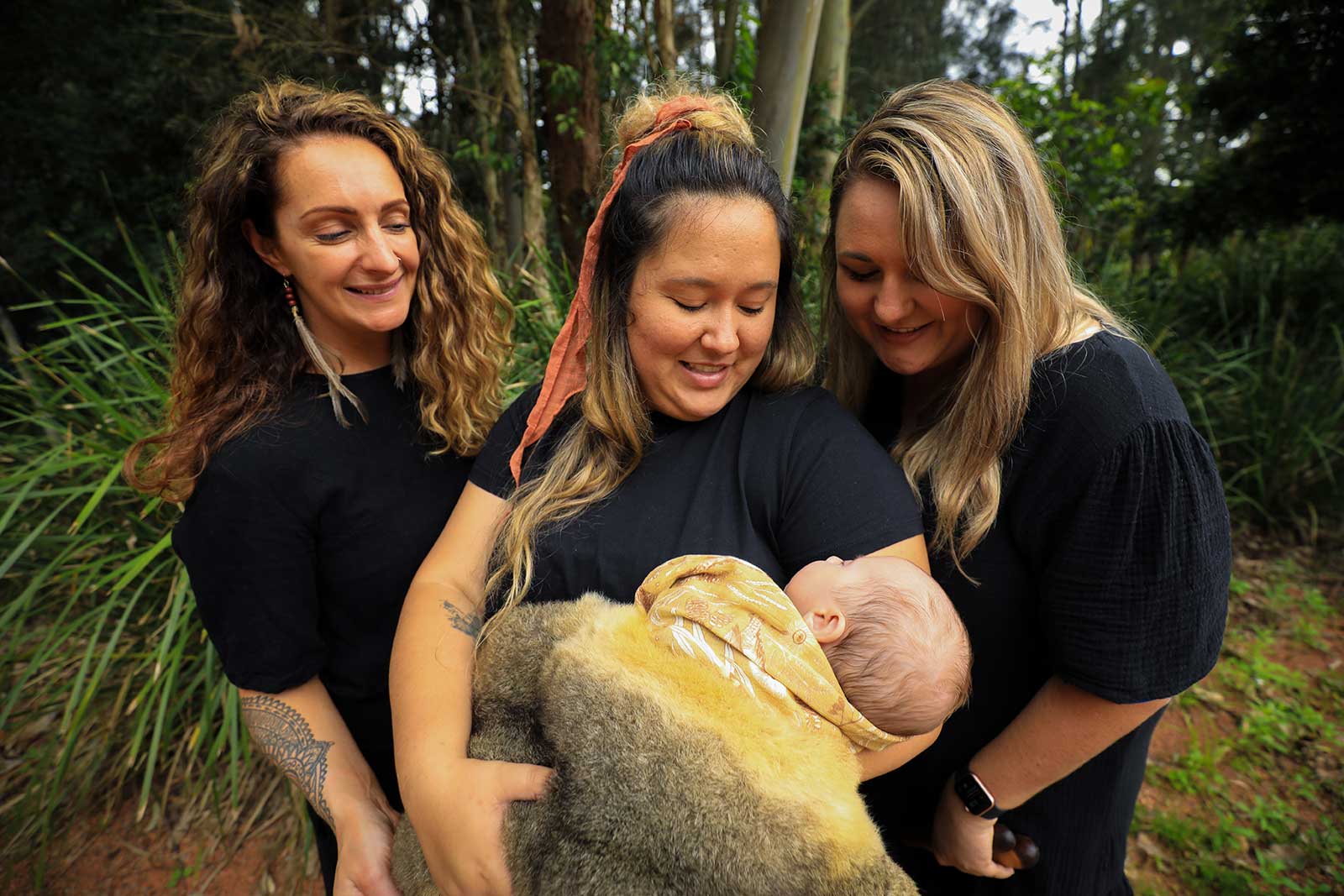Researcher Highlights
Culture at the core of empowering community
Dr Michelle Kennedy is a proud Wiradjuri woman who grew up on Worimi country. Her lived experience inspired her desire to improve health outcomes for Aboriginal and Torres Strait Islander people. She’s currently committed to improving smoking cessation rates among Aboriginal and Torres Strait Islander people including during pregnancy.

Growing up, some of Michelle’s fondest memories are the times she spent with her Bapu (grandfather). Inspired by his commitment to the Aboriginal community, Michelle soaked up his teachings, passion and guidance.
“He instilled excellence in me and taught me that I had privilege and must always give back and be of service to my people and my community. He’d always ask me ‘how are you going to give back?’”
Michelle’s work is the answer to her Bapu’s question. Embracing his values and legacy she’s paving the way to success and opportunity for her people.
Michelle has a BA in Arts (Hons) and MA in Social Science (Social Work) and has worked across the Hunter New England area as an artist, community development practitioner and social worker. Her key focus is on Aboriginal health and tobacco control with a growing track record in Indigenous research methodologies and ethics.
Michelle’s PhD in Aboriginal Health addresses ‘Culturally responsive approaches for the empowerment of Aboriginal and Torres Strait Islander women in smoking cessation care’.
Before submitting her PhD thesis, Michelle was awarded an NHMRC early career fellowship. Utilising Indigenous methodologies within the health research space, Michelle’s fellowship research findings have been published in the Medical Journal of Australia. The project titled ‘Which Way?’ is the first Indigenous-led primary evidence developed for, and by, Aboriginal and Torres Strait Islander women to guide policy and practice for cessation care.
“Our Indigenous-led research project found that resources and funding are urgently needed to improve culturally safe and responsive smoking cessation supports for pregnant Aboriginal and Torres Strait Islander women who are trying to quit smoking,” says Michelle.
“The findings support evidence that comprehensive, community-led support for Aboriginal and Torres Strait Islander women is key to cessation success.”
Overcoming challenges
Aboriginal and Torres Strait Islander health is complex, and a lack of local First Nations health research academics makes research challenging. However, Michelle has overcome boundaries and has acquired a high level of knowledge and skills in Indigenous methodologies and critical theory training through the previously funded National Indigenous Research and Knowledges Network (NIRIKAN).
“My research has been largely centred in Aboriginal Community Controlled Health Services. We know these are significantly under resourced, but they consistently provide high quality, culturally safe health care to Aboriginal and Torres Strait Islander people.”
Michelle’s research began locally but now reaches nationally and internationally. It’s currently informing national policy in line with the Closing the Gap reform to decrease the number of babies born with low birth weight.
“On a service provider level, I’ve taken my research findings across the country delivering workshops with Tackling Indigenous Smoking funded organisations to develop community-based health messaging for Aboriginal and Torres Strait Islander mothers during pregnancy.”
Partnering for success
To effectively translate her research into impact, Michelle has established strong partnerships and collaborations with Aboriginal community controlled health services, peak bodies in Aboriginal and Torres Strait Islander health and government agencies.
Her recent national project exploring the conduct of Aboriginal and Torres Strait Islander health research is governed by the National Health Leadership Forum, who also oversee the implementation of the Aboriginal and Torres Strait Islander health plan.
The project, Murra Minya, partners with the Lowitja Institute which supports knowledge translation activities and include Aboriginal and Torres Strait Islander research investigators nationally and across all field of research. Murra Minya aims to understand how the Aboriginal and Torres Strait Islander Ethical Guidelines are implemented from the perspective of Aboriginal and Torres Strait Islander communities, academics and ethics committees. More details can be found on the project’s website www.murruminya.com.au
Motivated by change
“I’m passionate about continuing to empower Aboriginal and Torres Strait Islander people to lead, research that inform health policies and to contribute to establishing a sovereign Aboriginal and Torres Strait Islander health research agenda,” says Michelle.
“I hope to provide more Aboriginal and Torres Strait Islander students training and employment in research and assist them on their PhD journey.”
Future hopes and goals
Moving forward, Michelle is committed to supporting the development and funding of a smoking cessation workforce in Aboriginal community controlled health services.
She’s also facilitating many high impact projects across Australia including implementing national group based smoking cessation care in Aboriginal community-controlled health services and offering mailout smoking cessation support.
“It will take more than a generation to see the tangible impacts of my research. However, nearly every day I help Aboriginal and Torres Strait Islander people to quit smoking in culturally safe and meaningful ways. This has immediate impacts on their economic, environmental and physical wellbeing.”
As if that’s not enough, she has her sights on leading the development of a national Aboriginal and Torres Strait Islander Health and Medical Research Ethics Committee.
“I am committed to contributing the transformative change in Aboriginal and Torres Strait Islander health, this includes the ways in which research is conducted. All research must be of benefit to Aboriginal and Torres Strait Islander people and uphold our rights as first peoples.”
The University of Newcastle acknowledges the traditional custodians of the lands within our footprint areas: Awabakal, Darkinjung, Biripai, Worimi, Wonnarua, and Eora Nations. We also pay respect to the wisdom of our Elders past and present.